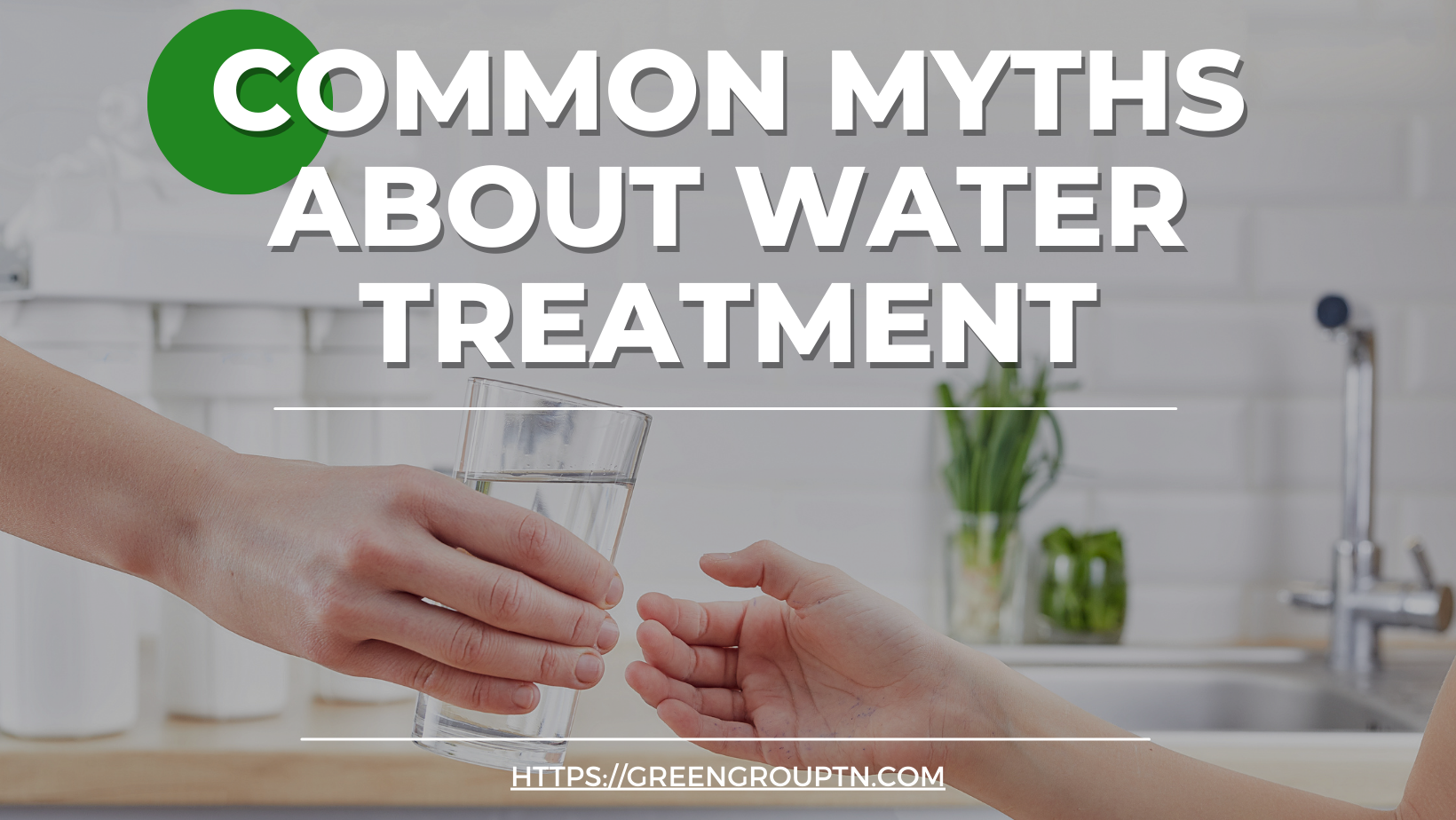Water treatment plays an important role in ensuring the water you use is safe, clean, and healthy. Despite its importance, several myths surrounding water treatment and filtration systems can make it challenging for homeowners to make informed decisions. Let’s debunk some of these common misconceptions and highlight the true benefits of water treatment.
Myth 1: Water Filtration Systems Are Expensive
Many believe that water filtration systems are beyond their budget. However, while there is an initial cost, the long-term savings and health benefits far outweigh this investment. Filtration systems eliminate the need for bottled water, resulting in substantial savings and providing you with fresh, clean water free from harmful chemicals. For more insights on cost-effective water solutions, visit our Green Group services page.
Myth 2: They Require High Maintenance
Modern water filtration systems are designed for ease of use and longevity, challenging the myth of high maintenance. With filters that typically last up to six months, maintenance is minimal, requiring only occasional checks to ensure optimal performance. This reduces the need for constant upkeep and ensures your system lasts longer.
Myth 3: Bottled Water Is Superior
The belief that bottled water is better than filtered water is unfounded. With daily water needs totaling up to three liters, bottled water costs can quickly add up. A water filtration system offers a sustainable and cost-effective alternative, reducing plastic waste and providing a continuous supply of safe water. Learn more about sustainability in water consumption at the EPA’s WaterSense program.
Myth 4: Filters Remove Beneficial Minerals
Concerns that filtration systems strip water of essential minerals are overstated. While some minerals are reduced, the primary goal is to eliminate harmful contaminants, not beneficial nutrients. Our bodies primarily obtain necessary minerals from a balanced diet rich in vegetables and fruits.
Myth 5: Installation Is Complicated and Costly
Many homeowners fear the installation process is both expensive and time-consuming. However, most systems are user-friendly, and with some basic DIY skills, you might manage the installation yourself. For a hassle-free setup, professional installation is always a reliable choice and typically affordable.
Myth 6: High Electricity Consumption
Water filtration systems are engineered to be energy-efficient, consuming far less power than many household appliances. Their designs prioritize minimal energy use, ensuring your electricity bill remains manageable.
Myth 7: Pitcher Filters are Superior
While pitcher filters might seem convenient, they often use less effective microfiltration methods and require frequent refills. Comprehensive water filtration systems provide a more reliable and hassle-free solution, ensuring better water quality.
Myth 8: Water Softeners Solve All Issues
While water softeners are excellent for addressing hard water problems, they do not resolve all water quality concerns. A filtration system ensures comprehensive removal of harmful chemicals, enhancing both taste and smell. Consulting with professionals can help determine the best system tailored to your needs.
Myth 9: Municipal Water Is Fully Purified
Even though municipal water undergoes treatment to meet safety standards, it can still contain treatment-related chemicals. A home filtration system adds an extra layer of purity, safeguarding against potential contaminants.
Myth 10: Clean Taste and Smell Equals Clean Water
Many contaminants, such as pesticides and industrial chemicals, are tasteless and odorless, making them undetectable. Installing a filtration system ensures comprehensive purification, protecting your family’s health.
Debunking these myths emphasizes the importance of making informed decisions about water treatment. Investing in a filtration system not only enhances water quality but also contributes to environmental sustainability and long-term savings.
At Green Group, we are dedicated to providing top-notch plumbing and water filtration solutions. Explore our contact page for more information on our services and discover how we can help protect your home with effective water treatment solutions.

